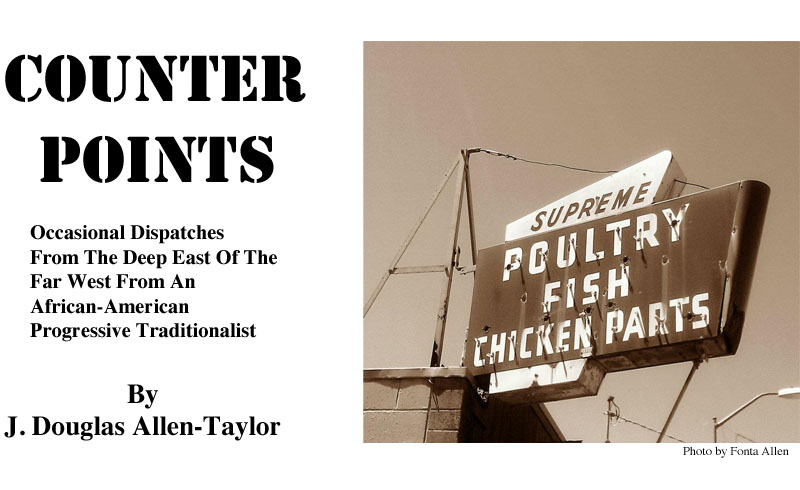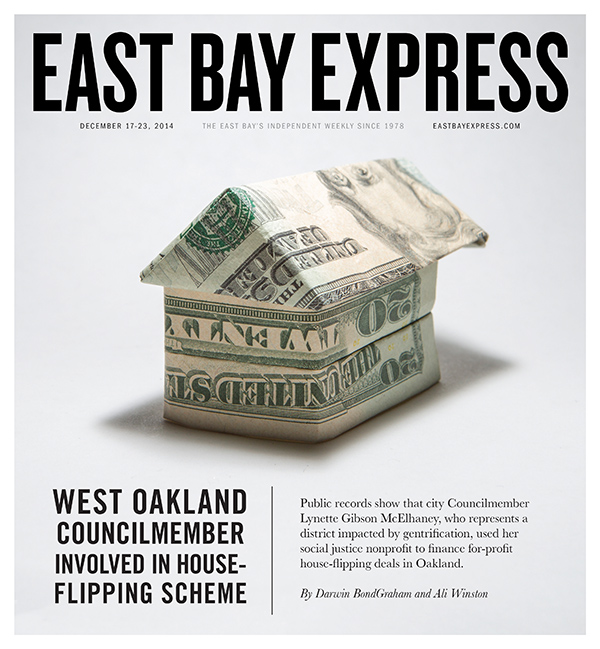|
|
CONCERNING POLITICAL HIT PIECES January 5, 2015 During last year’s Oakland mayoral campaign, the Bay Area News Group (which includes the Oakland Tribune) published a series of articles charging At-Large City Councilmember Rebecca Kaplan with campaign finance violations during Ms. Kaplan’s 2010 and 2014 runs for mayor. Three months later, East Bay political blogger Steven Tavares described the first of those articles (“Kaplan Kills Scrutinized Campaign Fund” Contra Costa Times June 21, 2014) as a “hit piece” (“Inside The Hit Piece Last Summer Against Rebecca Kaplan” EBCitizen September 20, 2014]. However, the Tribune article wasn’t a hit piece. Mr. Tavares’ mischaracterization of the article reflects a general confusion by many in the public and the press about the true definition of what a political “hit piece” really is. Something like the terms “racism” and “gentrification,” “hit piece” is a potent accusation that has been widely overused to the point of misuse, It has now come to mean any and all charges made against a candidate during a political campaign that someone feels are either untrue or “unfair” (whatever “unfair” happens to mean at the time). In actuality, a political hit piece involves something a bit more than, and a bit different from, that. One type of political hit piece is an article making damaging charges against a political office holder or a political candidate that are purposely designed for the charges to be impossible to be either refuted or forced to be proven or in time to prevent the damage from being done. One way to make it impossible to refute such charges is for the charges to be leveled so close to an election that the politician has no time to answer. That’s why the Tribune Kaplan campaign finance article last June was not a hit piece, because Ms. Kaplan had plenty of time before the November election to refute the charges. One of the keys is that what is important in defining a political hit piece is not whether the underlying facts actually happened or not, but the interpretation of those facts. Why do I say that? Suppose I told you that I observed one of my neighbors just walk up to another man, start yelling at him, and then whipped his ass, and that the second man had not seemed to be doing anything to provoke my neighbor. I might then conclude to you that my neighbor is a dangerous man, aggressive and violent, who should be avoided, and based upon the facts I presented, you might agree with me. However, suppose you later found out that the second man had earlier molested the neighbor’s child. That would not change, in the least, the original facts I presented. But it would certainly alter your interpretation of the entire event. Both in journalism and in politics, facts taken selectively or out of context—either unintentionally or intentionally—can completely change the truth of an assertion or conclusion. That’s what our friends at the East Bay Express did last month when they published a series of three articles about the various “problems” of Oakland City Councilmember Lynette Gibson McElhaney, and that’s why those articles qualify as hit pieces. The first was published in mid-December, and was called “West Oakland Councilmember Involved In House-Flipping Scheme” By Darwin BondGraham and Ali Winston (December 16, 2014). The heart of that first article was the allegation that the non-profit Richmond Neighborhood Housing Services the organization Ms. McElhaney runs, loaned money to a real estate speculator who used the money not to create affordable housing in Oakland—as the charter of Neighborhood Housing Services calls for—but to buy three houses in certain parts of Oakland and then resell them at a considerable profit, far out of the price range of low or moderate-income renters or potential home purchasers. The Express article called what the real estate speculator did acts of “gentrification,” adding that Ms. McElhaney made those actions possible, even though she campaigned against gentrification and has repeatedly and forcefully condemned the practice. It’s only if you read the article carefully that you noticed some discrepancies in that allegation. The original purchase prices of the three houses by the realtor, for example, were already out of the range of low or moderate income families, even before the realtor bumped up the sale price, and at least two of the houses were in neighborhoods (one close to Claremont Avenue, the other in the East Oakland hills near 98th Avenue between MacArthur Boulevard and 580) that that no-one would describe as either low or moderate income. You can’t gentrify a neighborhood that is already made up of gentry. As for the third house, it sits in North Oakland’s Idora Park neighborhood, a moderate income community between Telegraph Avenue and Shattuck that might, conceivably be the target of gentrification. However, even the Express article admitted that the realtor bought the house below value and then made major repairs—including repairing the sewer and putting on a new roof—and then selling the house at roughly the same prices other houses in the neighborhood were selling for. Those are not actions we normally associate with gentrification of a neighborhood. There were some other even less credible charges in the first Express article, such as Ms. McElhaney was guilty of “conflict of interest” because her sister also loaned money to the realtor in question to help him buy the three houses, and that Ms. McElhaney is suffering from some financial problems and is seriously behind on paying her taxes. But even if all of the alleged facts in the Express article were true, it did not appear to me that the newspaper had proved a case that the Councilmember was guilty of wrongdoing, and I considered it a case of overenthusiastic journalism. That’s until I read the paper’s December 31st followup article (“West Oakland Councilmember Fails To File Campaign Reports,” again by Darwin BondGraham and Ali Winston as well as editor Robert Gammon’s accompanying analysis (“Oakland Council Poised To Dampen The New Year”). These two late December articles leave little doubt that the real purpose of the newspaper’s series appear to be to prevent Ms. McElhaney from being voted in as the next president of the Oakland City Council this week. Mr. BondGraham and Mr. Winston give the first hint as to the purpose of the McElhaney series by starting off the December 31 article, not with an allegation of wrongdoing by Ms. McElhaney, but by telling us that the Councilmember is a candidate for the Council presidency. If that’s not plain enough, Mr. Gammon makes Ms. McElhaney’s candidacy the entire purpose of his accompanying commentary, concluding that the election of Ms. McElhaney “would be a mistake.” Coming so close to the Council vote, presenting complicated charges and conclusions that are impossible to properly answer, investigate, and either verify or refute before that vote, is what qualifies the Express McElhaney series as hit pieces. And so the vote will take place on Monday, January 5, before the Council and the public can ascertain that both the alleged facts and, more important, the newspaper’s allegations, are correct. There is certainly not enough time to provide a detailed analysis here. This column therefore, should not be considered a defense of Ms. McElhaney. I don’t know whether or not she deserves being defended. I have not talked with either the Councilmember or anyone at the Express about the allegations, and I don’t have nearly enough information to come to a judgment one way or another. It may be, in fact, that all of the facts included in the Express McElhaney series are true, and the newspaper is correct in concluding that Ms. McElhaney is unfit for the Council presidency. On the other hand, may be that even if all of the facts listed in the Express articles are correct, some or all of them may have a more innocent explanation or interpretation more favorable to the Councilmember, and should not, therefore, be held against her. The problem is, the allegations need much more independent investigation by a non-biased individual or agency or newspaper before a fairer and more accurate conclusion can be reached.
|

